
The quest for operational resilience: Mastering digital transformation
Operational resilience is key for financial firms amid rapid tech advances, enabling innovation but increasing cyber threats, regulations, and risks.

Operational resilience is key for financial firms amid rapid tech advances, enabling innovation but increasing cyber threats, regulations, and risks.

Merchants gathered in London to tackle evolving fraud challenges, highlighting technology and collaboration as key to staying ahead.

AI-driven fraud is rising, pushing firms to adopt advanced tools, partnerships, and training to stay ahead.

Generative AI boosts fraud detection but heightens data privacy risks, urging firms to balance innovation with strong compliance.

Operational resilience is crucial as FCA and EU regulations push firms to guard against disruptions and cyber threats.

Payments in 2025 will be shaped by AI, instant payments, CBDCs, embedded finance, and sustainability.

The PSR has lowered the APP fraud reimbursement cap to £85,000, raising concerns over fraud prevention

Merchants face new challenges as payment innovations like open banking and tokenisation reshape the industry.

Swift’s updated CSP and IAF are essential for ensuring robust cybersecurity and compliance across the global banking community.

Despite significant advancements in artificial intelligence and machine learning for profiling customers, a crucial issue remains among industry bodies: the lack of effective information sharing.

In recent years, the UK has been keen on positioning itself as a global crypto asset hub, however it’s currently facing critical obstacles which are hindering its effort.

Sumsub, a full-cycle verification platform, releases its ‘State of Verification and Monitoring in the Crypto Industry 2023’ report. Polina Uzhva, partner marketing manager, Sumsub, provides a summary, focusing on the regulations and verification practices for crypto companies, with highlights from verification performance and identity fraud statistics.

The Supreme Court ruling on Philipps v Barclays case was welcome news for compliance teams at payments companies, however extended fraud liability is not completely off the table.

Aleksander Tsuiman, at Veriff, explains why he believes remote identity verification can help businesses keen to adopt or build their own use of cryptoassets without the common security risks associated

Be recognised as an industry leader at the most important payments awards – The PAY360 Awards. Nominations are now open for 2023 awards. You have until 17 February to submit your entry.

In the coming months, Project Financial Crime members expect criminals to become quicker at exploiting the government’s cost of living schemes to help the vulnerable.
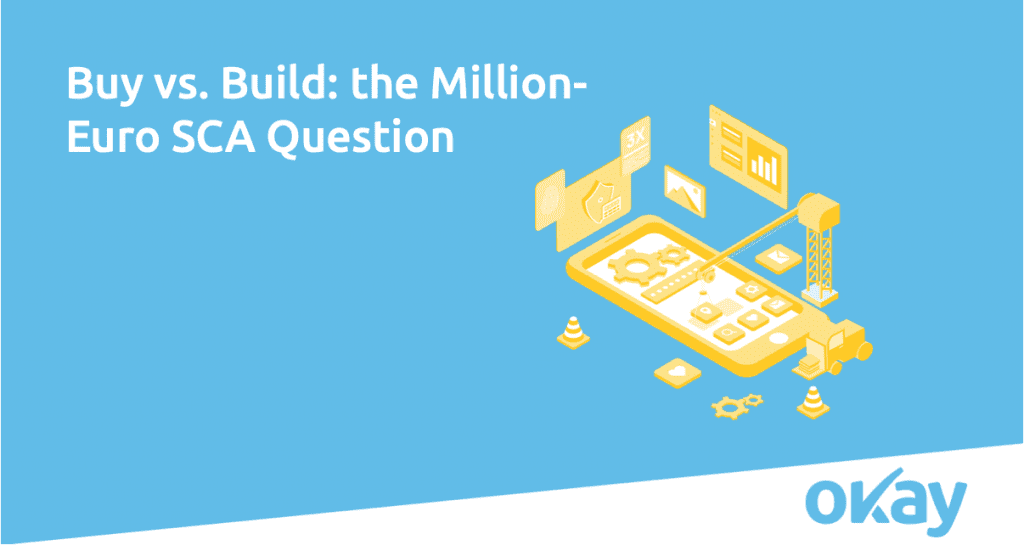
“Should we build in, or should we buy in?” This is one of the oldest software-questions management teams have to answer. Yet we believe that this should be less of a consideration regarding whether or not an organisation can build something. Rather, the right question is why they should build it.
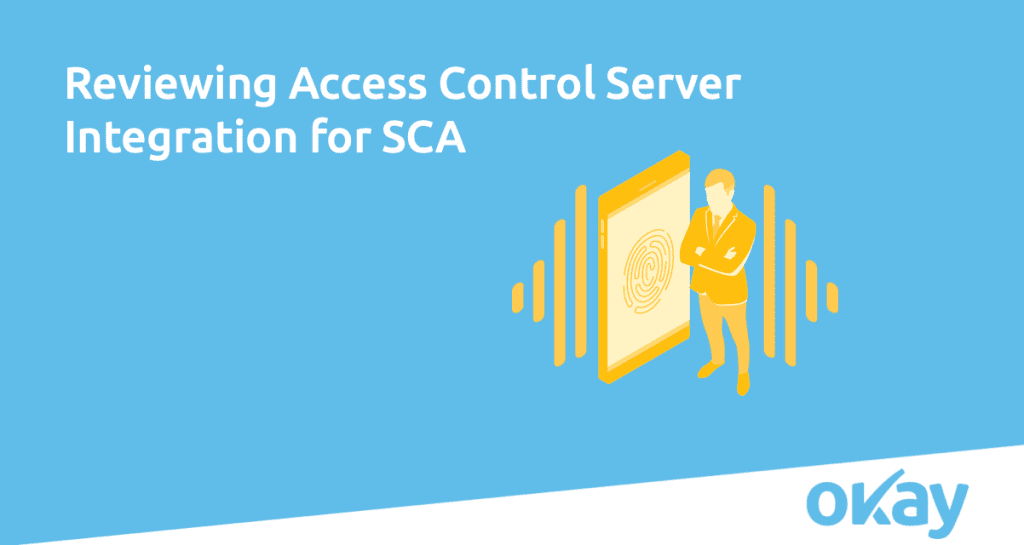
In order to receive 3D Secure messages, process said messages, and authenticate card users, issuing banks must deploy Access Control Servers (ACS). To ensure that transaction integrity is never compromised, the Okay software works in parallel to prevent attacks and protect user information during confidential transactions. The process looks a little something like this:

Entersekt CEO Schalk Nolte explains how fraudsters can be stopped by placing intelligent roadblocks in online transactions.

With the advent of passwords at MIT 60 years ago, Gerhard Oosthuizen Entersekt CTO, contends that it’s time that we replace passwords with more robust technologies.
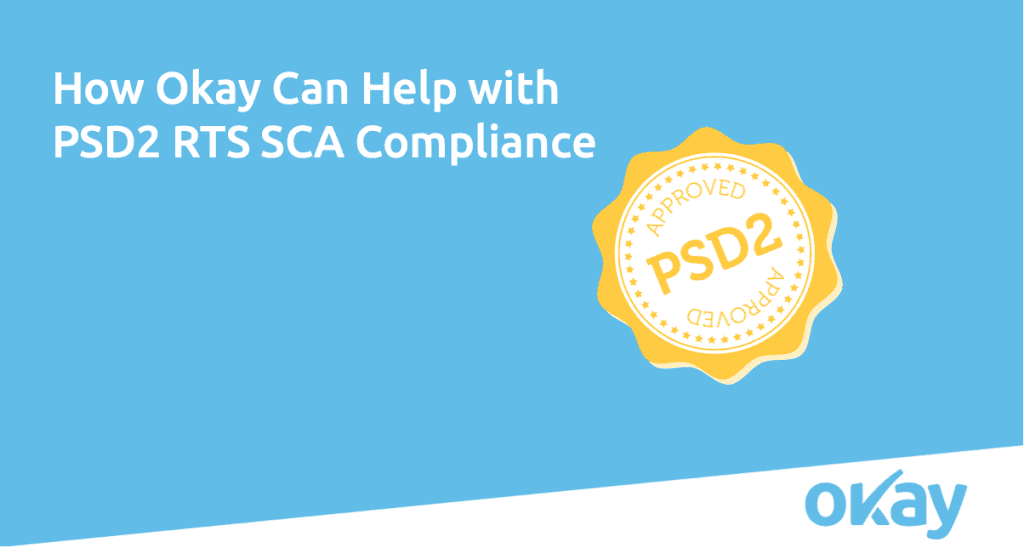
Compliance, requirements, deadlines, oh my! By now you should have a comprehensive overview of what to be aware of as PSP. As such, it is time to wrap up the topic of SCA compliance. In this article, we cover how Okay uses security evaluations to fine-tune our product as well as how we can help you meet SCA PSD2 RTS compliance standards.
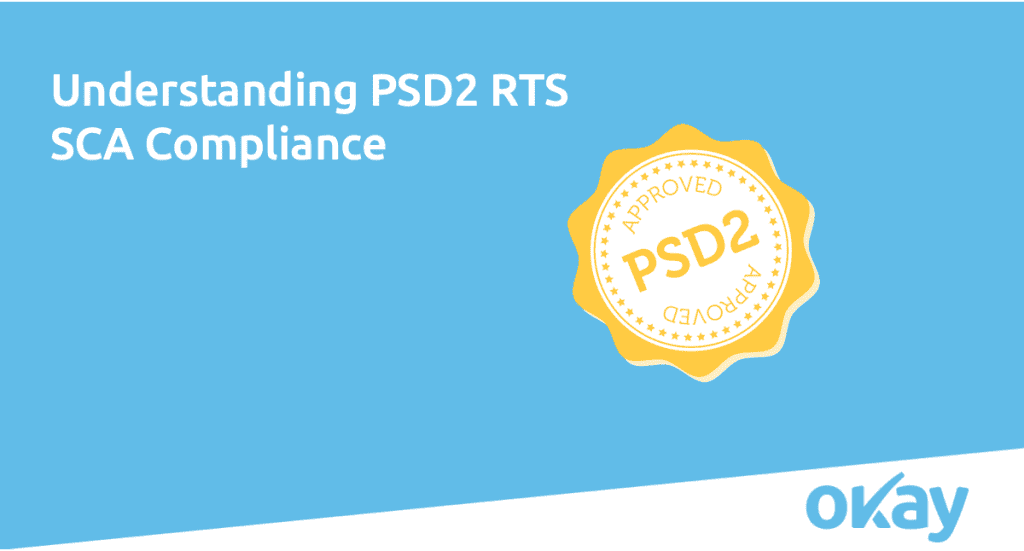
Compliance. A scary term for any payment service provider (PSP) in a world of increasingly stricter regulations and requirements. To make it a little less scary, we are opening the PSD2 RTS Compliance door to extract some key points of interest. Read on for the fundamental requirements PSPs should be aware of if issuing cards or e-money payments and why said requirements are necessary.

One of the more vexing problems of the modern age when it comes to international business is that regulatory regimes often do not keep pace with technological innovation.
Nonetheless, novel solutions to B2B cross-border business have emerged in the form of virtual IBANs, financial instruments that drive the innovation economy and enable new, powerful business models.
Here we have outlined three ways that virtual IBANs are transforming the way companies do business locally and abroad:

The year 2020 saw many of the innovations and prognostications of analysts come true as contactless payments and digital banking solutions drove the field of Fintech innovations. Looking ahead, however, 2021 could be the year that consolidates much of this growth and prepares the economy for the next stage of digitization.
We at Monneo have identified five major trends that we think are driving the Fintech innovations in digital banking, in 2021 and beyond:
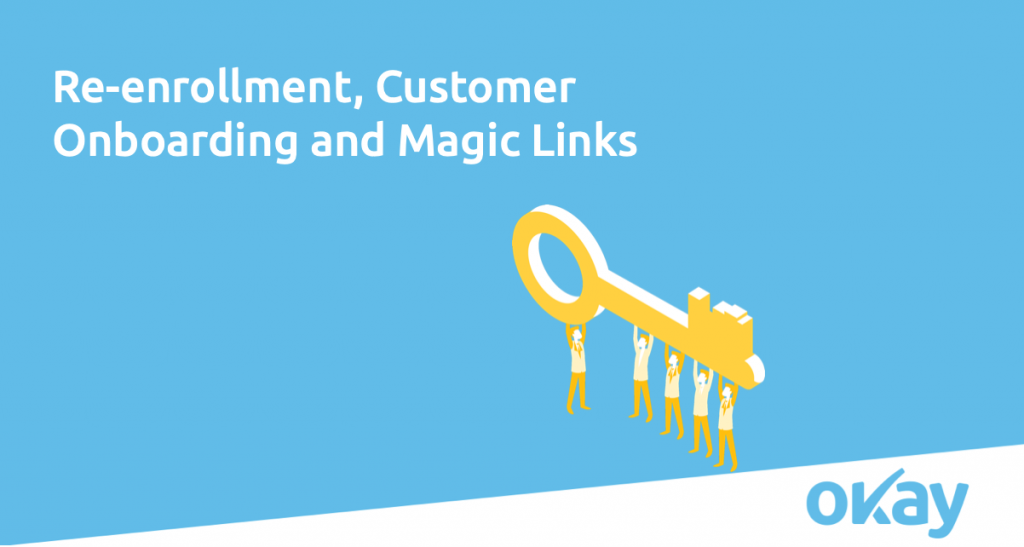
The reason why re-enrollment is so sensitive is simple: when you do an app-based strong customer authentication (SCA), the user has already been authenticated on the device. This means that it is possible to check the ‘possession’ factor using a device fingerprint from before.
If a customer has a new device, and has an existing device registered to their account, we recommend using SCA to enroll. A typical way to do this would be to use a QR code that the user can scan from one device to another. In the case where there are no existing devices linked to an account, we recommend that the customer go through a full “know your customer” (KYC) procedure in order to re-enroll their new device.
One of the ways we’ve helped our customers strengthen their re-enrollment process is to implement a mechanism known as ‘magic link’. A magic link is a link received through a semi-secure channel that authorises the customer to use a particular device. Using a link like this can be practical, as the re-enrollment procedure might be stretched out over time.
Interested in hearing more about Magic Links? Be sure to read the full article at okaythis.com/blog.
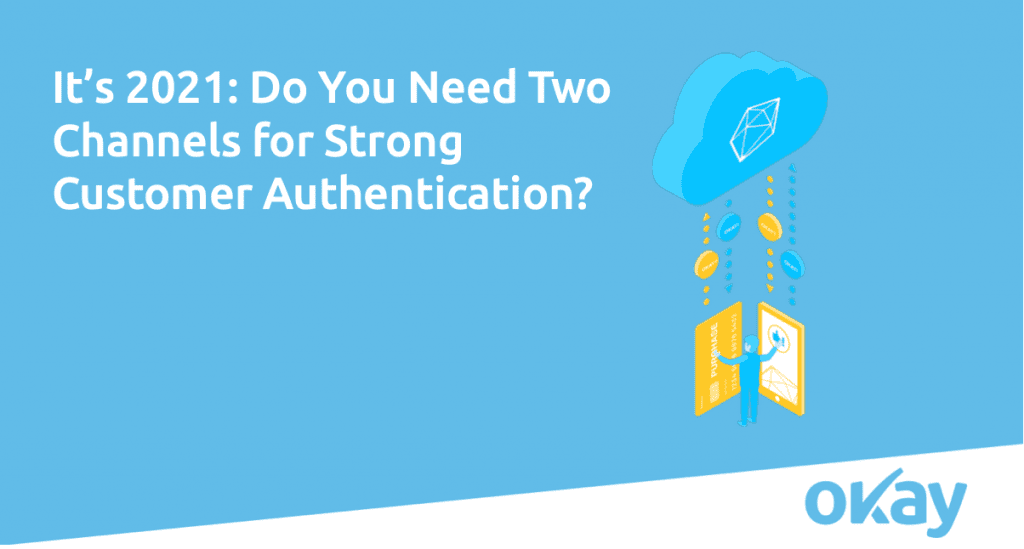
Okay has been running compliance audits since 2016. What did it look like back then compared to today? Are two channels for SCA really needed? This week we briefly explore the changing security environment of mobile phones related to identity verification.

The recipe for success in the e-commerce business is much the same as any other entrepreneurial endeavor except it comes with many opportunities for growth and leverage that physical businesses don’t have.
Online business may be the future of many markets, and for good reason. From scalability of immediately needed resources to cost-effective innovation and optimization, we have identified five key elements of success for e-commerce business in the modern age:

E-commerce businesses can’t put enough of a premium on online cybersecurity and protection against threats. Not only can malicious actors steal data and commit fraud, but they can also completely undermine a customer’s confidence in your business.
To avoid costly fraud and cyber threats, we’ve found five primary areas of focus that e-commerce businesses need to keep in mind as they move forward in the online market:

As part of a European Union mandate called the Revised Directive on Payment Services, or (PSD2), merchants operating in the EU economic zone must use payment service providers within the European Economic Area that offer what is known as strong customer authentication.
This is also sometimes referred to as the SCA requirement or the PSD2 compliance. In essence, this directive ensures that transactions occurring within the EU’s economic territories make use of multi-factor authentication in order to verify a buyer’s identity.

The promises of the European Union single market, while not full borne out in the reality of the business world, where the same are actually still far from the dream promised when it comes to the virtual single market. What does this mean?
In other words, the European Union might act as a single market when it comes to monetary issues and beyond, but the EU single digital market is hampered and its growth restricted by a myriad of factors including various compliance regimes and the logistical mastery needed to make it all work.

– Introduction
– Evolution of Ransomware
– Beyond Windows
– Financial and Banking Sector
– Vulnerabilities and Malware
– Conclusions

– The Now: Rise of digital banking to cause further online banking fraud
– The New: Increase in new account fraud
– How can we stop these types of attacks as we enter 2021?
– Conclusion

Bottomline and Strategic Treasurer release the results of the 2021 Treasury Fraud & Controls Survey. This is the 6th annual survey between the long-time collaborators, whose research partnership also includes the annual B2B Payments Survey.
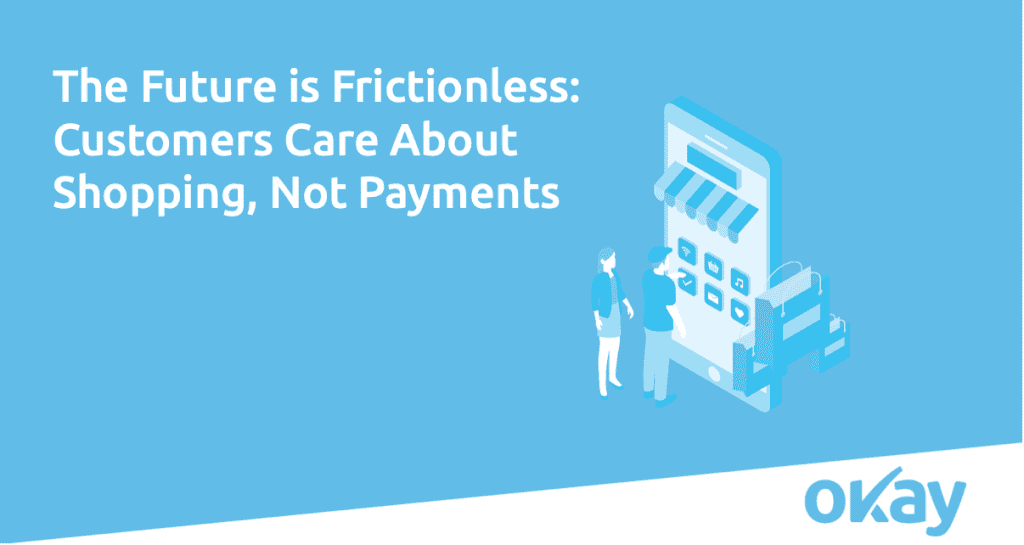
Okay wants to make the payment process as smooth as possible, specifically when it comes to customer authentication. While this is just one part of the payment process that can introduce friction, it is often where checkout abandonment occurs. In this post, we’ll try to describe some of the options that we’ve seen in the market regarding frictionless payments, including their strengths and weaknesses.

The global economy is expected to begin the process of recovery from the 2020 pandemic throughout 2021 and an integral part of that will be the payments industry as well as virtual IBANs and digital banking.
Analysts see five major trends on the horizon for 2021 in how things will change for the payments industry and digital banking services including enhanced automation to more robust identity verification as well as an authentication technology.
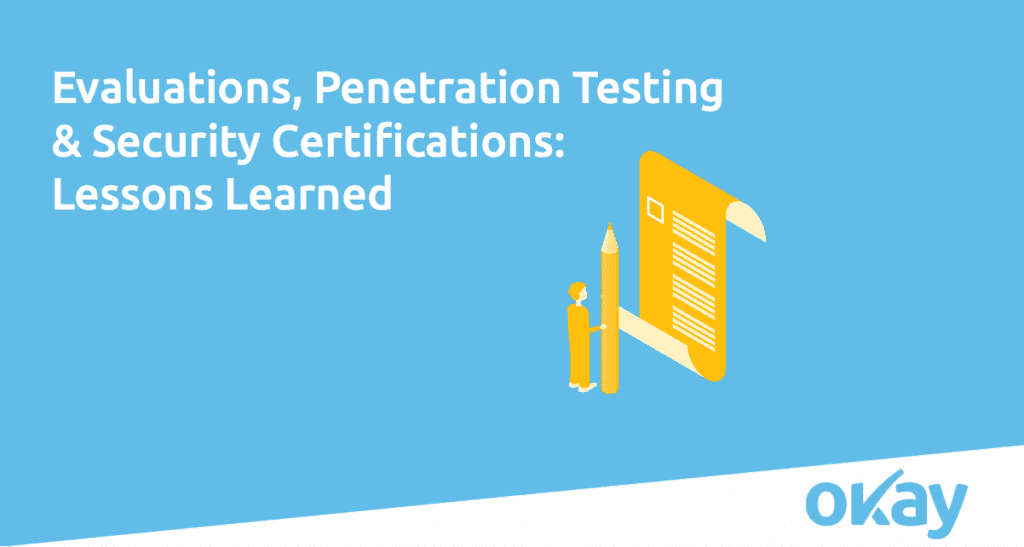
Over the last few years, Okay has gone through both security certifications and penetration testing. While they represent two uniquely different processes, each has greatly improved our product’s security, code quality and architecture. In this post, we discuss the importance of each, as well as what we’ve learned along the way.

Not only is the extension of digital banking services and digital payments solutions integral to the growth of mobile and online marketplaces, but also it is central to the monetary revolution taking place right now with cryptocurrencies and the rise of a cashless economy. We have identified three major movements in digital banking that could shape how the next several years play out, from enhanced payments processing to the integration of new consumer blocks into the financial system.
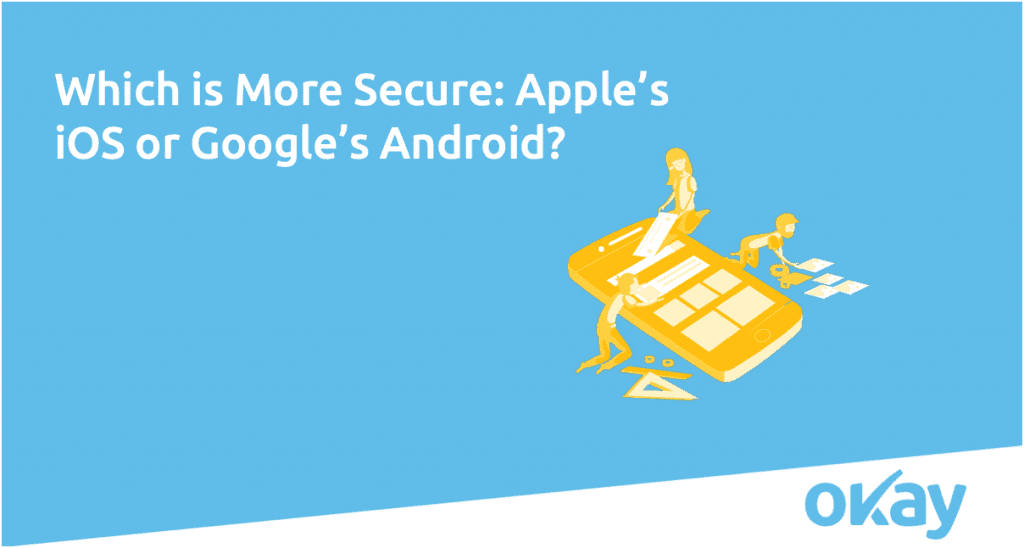
Will our smart devices be able to implement the necessary security measures to keep up with an ever-increasing digital marketplace? If so, which ones will reign supreme? In this article, we reflect on an age-old question of iPhone vs Android device, well worth considering by all financial industry players, big or small.

– Trust
– Safety
– Building trust and safety using behavioral biometrics
– Preventing fraud and maintaining mutual trust

– There has been an increase in fraud seeking to circumvent payments security
– Behavioral biometrics took steps towards becoming a foundational cybersecurity technology
– Fraud prevention in 2021 will become as much about response as detection

Merchant dispute technology specialist, Chargebacks911, is driving its ambitious growth plans in the Asia-Pacific (APAC) region with the appointment of its new Director of Business Development, APAC – Jia Min Tan.
Being based in Singapore, Jia Min will help facilitate the growth of Chargebacks911 and Fi911 (its new brand for financial institutions) in APAC, while bridging any language barriers that may be encountered in the region.

– Introduction
– GDPR and behavioral biometrics – what can’t be seen, can’t be stolen
– PSD2: A smarter way of customer authentication
– SCA
– Malware
– Maintaining customer trust and safety

– Introduction
– What happens if a fraudster has already infiltrated a bank’s system and is operating undetected from within?
– Fraudster Hunter’s Policy Manager
– Rule-based fraud prevention campaigns
– Key benefits of Policy Manager

– buguroo launches behavioral biometric 3D Secure solution
– The new 3D Secure offering
– The 3D Secure payment authentication system

– What is smishing?
– What happened in Ireland?
– Why is smishing so effective?
– The bank’s responsibility: Raise awareness, prevent fraud
– Using behavioral biometrics to prevent smishing

EML’s new FINLAB incubator has made its first investment in US FinTech disrupter Interchecks.

As #emerchants face high market volume and volatility, they will benefit from setting a North Star to focus on customer experience while effectively managing #fraud and #transaction risk. At Cybertonica, we create solutions on our SaaS/PaaS platform to make trust and frictionless commerce safe and secure for businesses and consumers. We know that outdated rules and operations can create almost Kafka-like situations. This happens through false positives and inappropriate rule-action that make consumers unhappy and businesses less profitable. We decided to collect stories from colleagues, friends and people in our network, including our customers and their clients, telling us how their e-commerce experience is going in this period. What we found was that there are both nightmares and nice surprises, but the payment experience is still far from perfect.
The Payments Association
St Clement’s House
27 Clements Lane
London EC4N 7AE
© Copyright 2024 The Payments Association. All Rights Reserved. The Payments Association is the trading name of Emerging Payments Ventures Limited.
Emerging Ventures Limited t/a The Payments Association; Registered in England and Wales, Company Number 06672728; VAT no. 938829859; Registered office address St. Clement’s House, 27 Clements Lane, London, England, EC4N 7AE.








Log in to access complimentary passes or discounts and access exclusive content as part of your membership. An auto-login link will be sent directly to your email.
We use an auto-login link to ensure optimum security for your members hub. Simply enter your professional work e-mail address into the input area and you’ll receive a link to directly access your account.
Instead of using passwords, we e-mail you a link to log in to the site. This allows us to automatically verify you and apply member benefits based on your e-mail domain name.
Please click the button below which relates to the issue you’re having.
Sometimes our e-mails end up in spam. Make sure to check your spam folder for e-mails from The Payments Association
Most modern e-mail clients now separate e-mails into different tabs. For example, Outlook has an “Other” tab, and Gmail has tabs for different types of e-mails, such as promotional.
For security reasons the link will expire after 60 minutes. Try submitting the login form again and wait a few seconds for the e-mail to arrive.
The link will only work one time – once it’s been clicked, the link won’t log you in again. Instead, you’ll need to go back to the login screen and generate a new link.
Make sure you’re clicking the link on the most recent e-mail that’s been sent to you. We recommend deleting the e-mail once you’ve clicked the link.
Some security systems will automatically click on links in e-mails to check for phishing, malware, viruses and other malicious threats. If these have been clicked, it won’t work when you try to click on the link.
For security reasons, e-mail address changes can only be complete by your Member Engagement Manager. Please contact the team directly for further help.